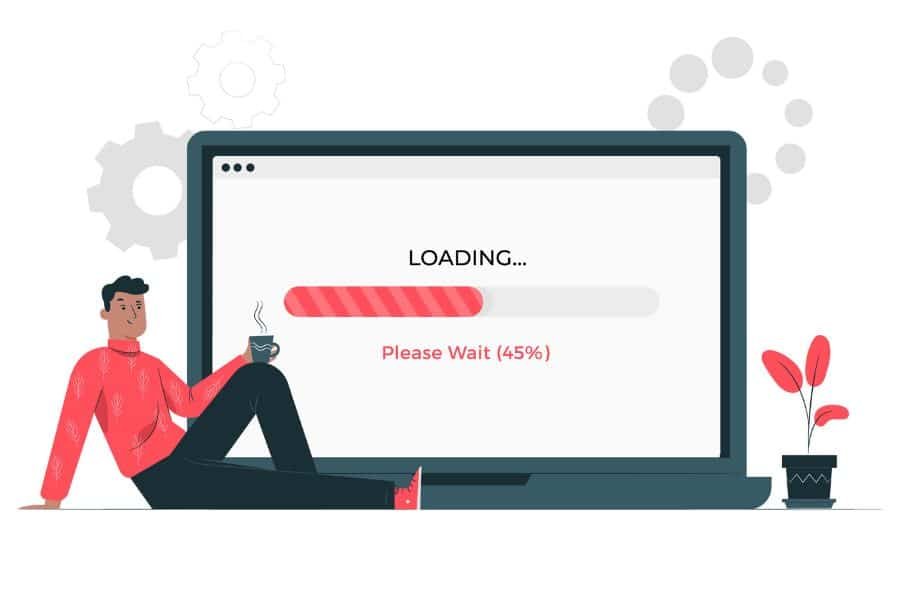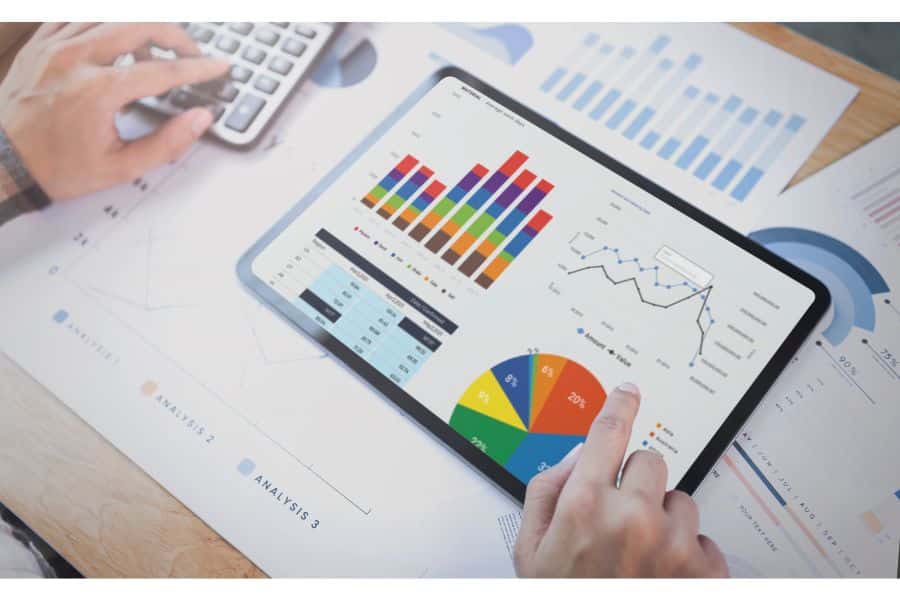10 SEO Tips to Boost Your Website’s Ranking
Introduction
In the ever-evolving digital landscape, Search Engine Optimization (SEO) stands as the cornerstone of online visibility. As businesses strive to enhance their online presence, understanding and implementing effective SEO strategies becomes paramount. In this comprehensive guide, we’ll unravel ten crucial SEO tips that can significantly boost your website’s ranking, driving organic traffic and fostering online success.
In this era of constant connectivity, where every click holds the promise of discovery, the importance of SEO extends far beyond a technical checkbox—it becomes the conduit between a website and its audience. It’s the catalyst that transforms a mere online presence into a thriving digital entity, capable of attracting, engaging, and retaining the attention of a global audience.
The journey toward SEO excellence is not a mere pursuit of algorithms and keywords; it is an expedition into understanding the intricate dance between user intent and digital visibility. In this comprehensive guide, we embark on a quest to unravel the nuances of SEO, unveiling ten indispensable tips that can elevate your website’s ranking, redefine your digital footprint, and position your online presence as an authoritative voice in your niche.
Conduct a Thorough Keyword Research
Keywords are the foundation of SEO. Identifying relevant and high-performing keywords in your niche is the first step towards a successful SEO strategy. Tools like Google Keyword Planner, SEMrush, or Ahrefs can assist you in finding keywords that align with your content and resonate with your target audience.
This process is not just about identifying high-volume keywords; it’s about understanding the language of your target audience, predicting their needs, and strategically integrating these insights into your content.
Start by brainstorming a list of seed keywords – these are the primary terms that directly relate to your business. These keywords should represent the core topics and offerings of your website. For example, if you run a fitness blog, seed keywords might include “weight loss,” “exercise routines,” or “healthy recipes.”
Evaluate the competition for each keyword. Tools like SEMrush often provide a keyword difficulty score, indicating how challenging it is to rank for a specific term. Balancing high-competition keywords with lower-competition opportunities allows for a more strategic approach. Organize your selected keywords into a comprehensive map that aligns with your website’s structure. Assign relevant keywords to specific pages or content types. This not only aids search engines in understanding your site but also ensures that each page has a clear focus.
Optimize On-Page Elements
Optimizing on-page elements is essential for search engine crawlers to understand your content. Ensure your title tags, meta descriptions, and headers incorporate targeted keywords while providing a clear and concise description of your content. A well-structured and keyword-optimized URL also contributes to better search engine visibility.
The title tag is the first thing users see on search engine results pages (SERPs). It’s also a vital signal for search engines to understand the topic of your page. Optimize title tags by incorporating relevant keywords, ensuring they accurately represent the content’s essence and encouraging user clicks.
Meta descriptions serve as concise summaries of your content. While not a direct ranking factor, they significantly impact click-through rates. Craft compelling meta descriptions that provide a snapshot of your content, enticing users to click and explore further. Include relevant keywords naturally and maintain a length of around 150-160 characters.
Include internal links to connect related pages within your website. This not only aids in user navigation but also distributes SEO value across your site. Additionally, incorporate authoritative external links to relevant, high-quality sources, showcasing your content’s credibility.
Create Quality and Engaging Content
Content remains king in the digital realm. Develop high-quality, informative, and engaging content that adds value to your audience. Google rewards content that satisfies user intent, so focus on creating content that answers questions, solves problems, and meets the needs of your target audience.
Effective content creation begins with a deep understanding of your target audience. Identify their needs, preferences, pain points, and the questions they seek answers to. This insight forms the foundation upon which your content strategy is built.
The headline is the first point of contact between your content and potential readers. Craft a compelling and informative headline that piques curiosity and accurately represents the content. Use power words, numbers, and a sense of urgency to make it irresistible.
Your content should address the needs and concerns of your audience. Whether it’s solving a problem, answering a question, or providing valuable insights, every piece of content should offer something of substance. This not only satisfies user intent but also positions your website as a reliable source of information. While creating engaging content, don’t neglect SEO best practices. Incorporate relevant keywords naturally into your content, especially in titles, headers, and throughout the body. This helps search engines understand the context of your content and improves its chances of ranking for relevant queries.
Utilize analytics tools to gain insights into user behavior. Understand how visitors interact with your content, which pages they find most engaging, and where they tend to drop off. This information guides you in refining your content strategy based on user preferences and behaviors.
Improve Website Loading Speed
Page speed is a critical factor in user experience and SEO. Visitors expect quick access to information, and search engines favor faster-loading websites. Optimize images, leverage browser caching, and consider using a Content Delivery Network (CDN) to enhance your website’s loading speed.
A slow-loading website not only frustrates visitors but can also result in a higher bounce rate, negatively impacting your SEO performance. Here’s a detailed exploration of strategies to improve website loading speed and optimize user experience.
Images often constitute a significant portion of a webpage’s size. Compressing and optimizing images without compromising quality is essential. Use tools like Photoshop, TinyPNG, or ImageOptim to reduce file sizes before uploading them to your website. Each element on a webpage, such as images, scripts, and stylesheets, requires a separate HTTP request.
The performance of your website is closely tied to the hosting plan you choose. Upgrading to a faster hosting plan, or even considering a dedicated server or a virtual private server (VPS), can significantly improve loading times, especially for resource-intensive websites.
Optimize for Mobile Users
With the increasing use of mobile devices, optimizing your website for mobile users is imperative. Ensure your site is responsive, and the mobile version provides an excellent user experience. Google’s mobile-first indexing prioritizes mobile-friendly websites, influencing search rankings.
Google’s emphasis on mobile-first indexing, which prioritizes the mobile version of a website for indexing and ranking, underscores the need for a mobile-friendly approach to web design.
How to Optimize for Mobile Users:
- Responsive Design: Implement a responsive web design that adapts to various screen sizes. This ensures a consistent and user-friendly experience across desktops, tablets, and smartphones.
- Mobile-Friendly Navigation: Simplify navigation for mobile users. Consider a hamburger menu or other intuitive navigation elements that conserve space and enhance ease of use.
- Optimize Images and Media: Compress images and optimize media files to reduce page load times. Large files can slow down mobile loading speeds, affecting both user experience and SEO performance.
- Accelerated Mobile Pages (AMP): Consider implementing Accelerated Mobile Pages, a Google-backed project that enables the creation of lightweight, fast-loading web pages. AMP can significantly improve mobile loading speeds.
- Test Across Devices: Regularly test your website on various devices and browsers to ensure consistent performance. Pay attention to different screen sizes, resolutions, and orientations.
- Mobile SEO Best Practices: Implement mobile SEO best practices, such as ensuring that mobile and desktop versions have the same content, using the same meta tags, and verifying your mobile site in Google Search Console.
- Page Speed Optimization: Prioritize page speed for mobile users. Optimize code, leverage browser caching, and minimize redirects to enhance loading times on mobile devices.
Build High-Quality Backlinks
Backlinks remain a powerful ranking factor. Focus on building high-quality, authoritative backlinks from reputable sources within your industry. Guest posting, influencer outreach, and creating shareable content are effective strategies for acquiring valuable backlinks.
High-quality backlinks are essentially “votes of confidence” from other websites, signaling to search engines that your content is valuable and authoritative. Building a robust backlink profile requires a strategic and thoughtful approach.
Before venturing into building new backlinks, it’s crucial to assess your existing link profile. Tools like Ahrefs, Moz, or SEMrush can help you identify your current backlinks and evaluate their quality. Craft content that is informative, unique, and valuable to your target audience. Whether it’s a comprehensive guide, an insightful analysis, or an engaging infographic, content that stands out is more likely to be shared and linked to by other websites.
Guest posting remains a reliable method for building backlinks. A well-crafted guest post not only provides a platform for showcasing your expertise but also includes a link back to your website.
If you’ve had positive experiences with products, services, or tools within your industry, consider offering testimonials. Many businesses feature testimonials on their websites along with a link to the source. This not only helps build relationships but can also result in valuable backlinks.
Enhance User Experience (UX)
User experience is closely tied to SEO success. A well-designed, intuitive website that is easy to navigate improves user satisfaction. Search engines reward websites that keep visitors engaged, so invest in a user-friendly design, clear navigation, and an overall positive user experience.
UX encompasses the overall interaction a user has with a website, focusing on how easy it is to navigate, how engaging the content is, and how satisfying the overall experience is for the visitor.
Users should be able to explore your website effortlessly, finding what they need without unnecessary clicks or confusion. A well-organized menu structure, clear labels, and logical categorization contribute to a seamless navigation experience. Given the diverse array of devices users employ to access websites, responsive design is non-negotiable. Ensure your website adapts seamlessly to different screen sizes, from desktops to smartphones and tablets. This not only caters to a broader audience but also aligns with Google’s mobile-first indexing, positively impacting SEO.
Regularly seek feedback from users to identify areas for improvement. Conduct usability testing to understand how users interact with your website and pinpoint any pain points. User feedback, combined with analytics data, provides valuable insights into user behavior and preferences.
Leverage Social Media
Social signals play a role in SEO rankings. While social media shares may not have a direct impact, increased visibility and engagement on these platforms can indirectly influence your website’s SEO performance. Share your content on social media channels to amplify its reach and attract potential backlinks.
While social signals may not be direct ranking factors, the influence of social media on a website’s overall online presence and SEO performance is undeniable. Leveraging social media effectively can amplify your content’s reach, foster engagement, and indirectly contribute to improved search engine rankings.
By sharing your blog posts, articles, and other website content on platforms like Facebook, Twitter, LinkedIn, and Instagram, you increase their visibility among your followers and a broader audience. This heightened exposure not only drives direct traffic but also enhances the likelihood of your content being shared, linked to, and referenced across the web.
When users share your content, it creates organic backlinks and exposes your website to new audiences. Google and other search engines may consider these social signals as indications of content quality and relevance, indirectly influencing your SEO performance.
Influencer marketing is a powerful strategy to leverage social media for SEO. Partnering with influencers in your industry can result in increased exposure, credibility, and backlinks. Influencers often have a dedicated following, and their endorsement of your content can amplify its reach and impact.
Regularly Update and Repurpose Content
Fresh and relevant content is favoured by search engines. Regularly update existing content to reflect the latest information and trends in your industry. Additionally, repurpose content into different formats (such as videos, infographics, or podcasts) to reach a broader audience and boost your SEO efforts.
Industry trends, statistics, and information evolve over time. Regular updates enable you to keep your content in sync with the latest developments, ensuring it remains relevant and trustworthy. Regularly updating your content signals to search engine algorithms that your website is active and committed to delivering current information, potentially boosting your search rankings.
Review your content to confirm that the concepts, examples, and references are still relevant. Removing outdated references and replacing them with current ones enhances the overall quality of your material. If new developments or insights have emerged in your field, integrate them into your existing content. This demonstrates your commitment to staying at the forefront of industry knowledge.
Repurposing content involves taking existing material and presenting it in a different format or for a different purpose. Transform long-form articles into engaging infographics, videos, or podcasts. Catering to different learning styles increases the likelihood of attracting and retaining a diverse audience.
Repurposing allows you to tap into new audiences that may prefer different formats or platforms, expanding the reach of your message.
Monitor and Analyze Performance
Effective SEO requires continuous monitoring and analysis. Utilize tools like Google Analytics, Google Search Console, and other SEO platforms to track your website’s performance. Monitor key metrics such as organic traffic, keyword rankings, and user engagement, and use the insights gained to refine and optimize your SEO strategy.
Monitoring and analyzing performance metrics provide invaluable insights that empower you to adapt, refine, and enhance your approach over time. Google Analytics serves as the cornerstone for tracking and understanding website performance. It offers a wealth of information, from the number of visitors to the time they spend on your site and the pages they engage with the most. Complementing Google Analytics, the Google Search Console is a treasure trove of information specifically tailored for SEO practitioners.
In addition to platform-specific tools, focus on key performance indicators (KPIs) that offer a comprehensive view of your SEO success:
- Keyword Rankings: Regularly check the rankings of your target keywords. A rise or fall in rankings can provide insights into the effectiveness of your content and optimization efforts.
- Backlink Profile: Monitor the growth and quality of your backlink profile. A diverse and authoritative link portfolio contributes to higher search engine rankings.
- Page Load Speed: Continuously assess your website’s loading speed, especially on mobile devices. Faster-loading pages enhance user experience and positively impact SEO.
- Conversion Rates: Evaluate the conversion rates of your landing pages and assess the impact of changes made to your website. A/B testing can help identify elements that contribute to higher conversion rates.
Regularly review your SEO metrics, compare them against benchmarks, and adapt your strategy based on the evolving landscape and user behavior. Stay informed about industry trends, algorithm updates, and emerging technologies that may influence SEO.
Conclusion
In the dynamic world of digital marketing, RK Media stands as a beacon of expertise and commitment to your SEO success. As the landscape evolves, so do our strategies. We understand that effective SEO is not a one-size-fits-all solution, and our team is dedicated to staying ahead of the curve.
At RK Media, we recognize that the ten SEO tips outlined in this guide are not merely tactics but stepping stones toward a holistic and sustainable SEO strategy. Our mission is to empower businesses with the knowledge and tools they need to not only boost their website’s ranking but to thrive in the competitive online environment.
As you embark on your SEO journey, remember that RK Media is here to guide you. From comprehensive keyword research to cutting-edge optimization techniques, we’re committed to elevating your online presence. Trust RK Media to navigate the complexities of SEO and lead your brand to new heights in the digital landscape. Together, let’s build a future where your website stands out, attracts organic traffic, and achieves the online recognition it deserves.
Image Reference: Freepik
Disclaimer: All trademarks, logos, and brand names are the property of their respective owners. All company, product, and service names used in this website are for identification purposes only. Use of these names, trademarks, and brands does not imply endorsement.




















